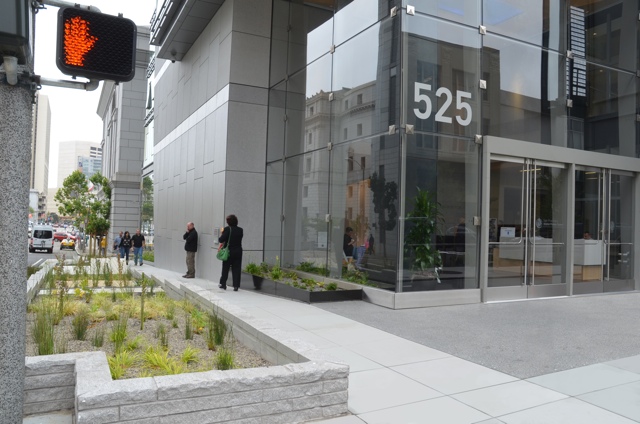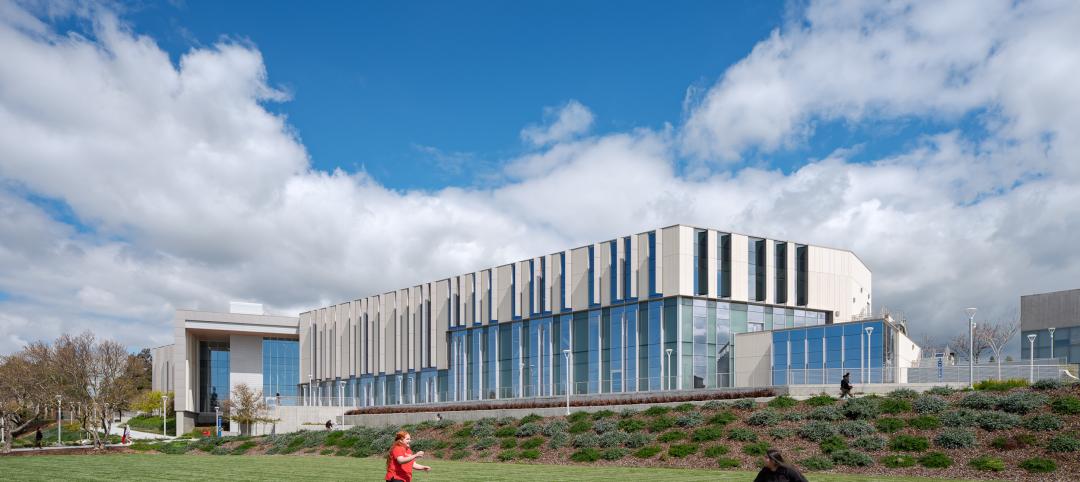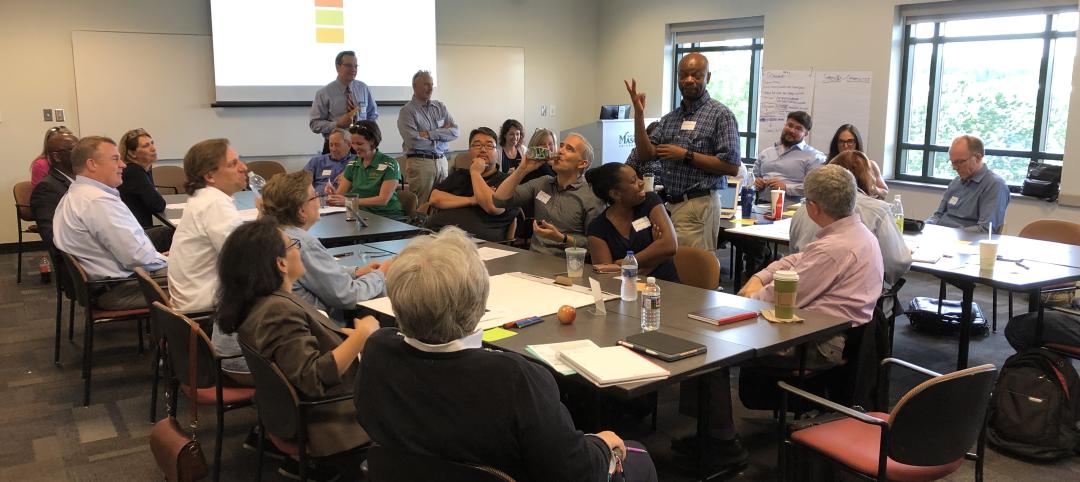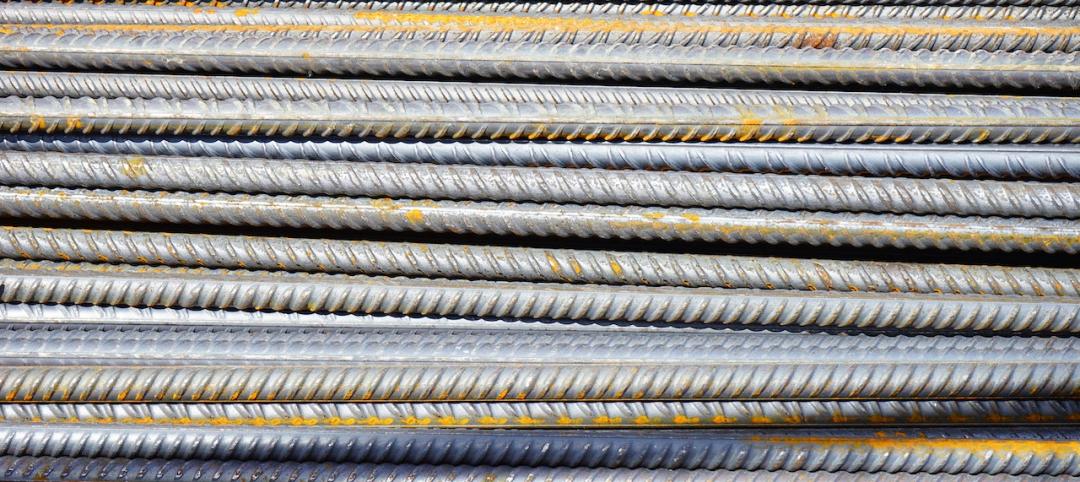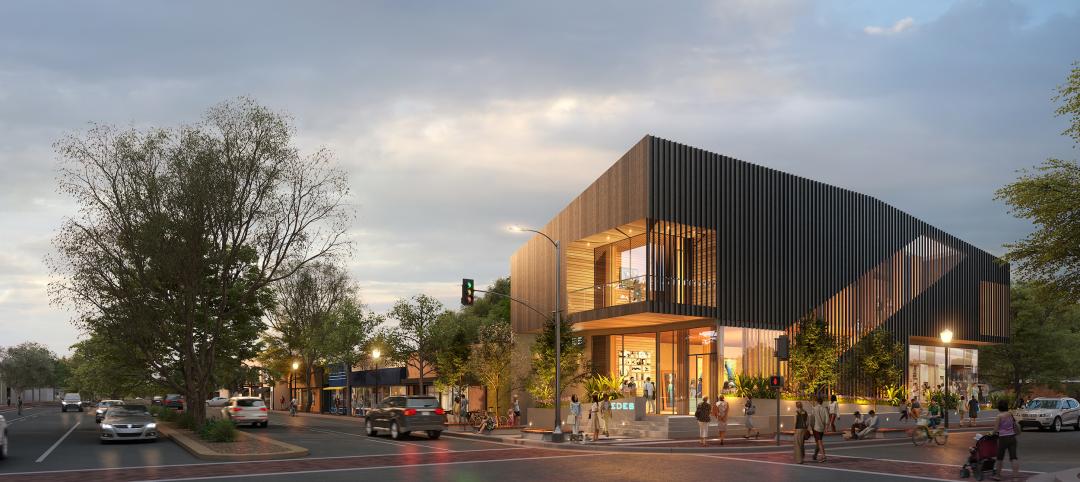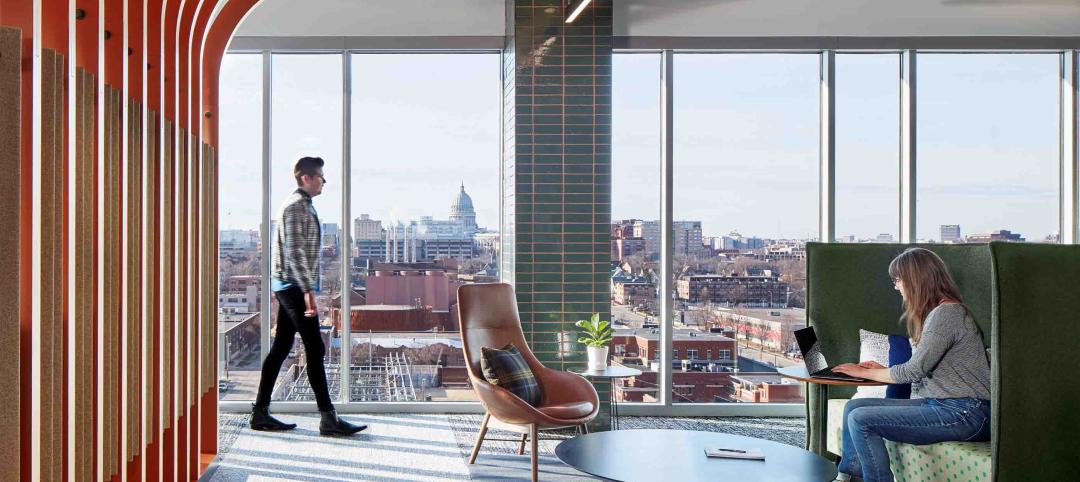Last week, the city of San Francisco announced the grand opening of the Greenest Urban Office Building in North America. The new San Francisco Public Utilities Commission Building (SFPUC) boasts new Living Machine technology, as well as LEED Platinum standards.
The 13-floor building can hold around 900 people, but consumes 60% less water and 32% less energy than most buildings of its kind. The building can achieve these high levels of conservation due it its on-site grey and black water treatment.
The technology for this treatment, The Living Machine, reclaims and treats all of the building’s wastewater– meeting the demand for all of the buildings toilets. The Living Machine can treat 5,000 gallons of water daily, reducing per-person water use from 12 to five gallons. The building also has a rainwater harvesting system that can store up to 250,000 gallons of water annually for use in the building’s irrigation systems.
As far as power goes, the building uses a greenhouse gas-free power from the Hetch Hetchy Reservoir, but also has an integrated hybrid solar array as well as a wind turbine that can generation about seven percent of the building’s annual energy needs.
The building was designed with a raised flooring system to house its data and ventilation infrastructure that also reduces heating, cooling and ventilation costs by over half. They also plan to do the more simple things, like automatically shut off workstation power after business hours, use more sustainable building materials, and limit parking to encourage alternative transportation among employees.
“The unique hybrid wind-solar installation combined with the use of onsite, recycled wastewater makes 525 Golden Gate one of the most self-sustaining buildings anywhere in the world,” said SFPUC General Manager Ed Harrington as part of the announcement. “We did not spare any detail to demonstrate the water-saving and energy efficiency revolution that all of us must start to embrace.”
However, the building cost the city a whopping $146.5 million– which brings back the argument between building new energy efficient buildings, or spending the money to make the ones we already have perform better. There isn’t a right answer, what’s probably best is for there to be a combination of the two– a new building should be built to high energy standards, but some time and resources should be taken to reboot the clunky power-wasters that remain in every city.
Employees are set to move in to their new space in July and August, and the building is set to be on track for its Platinum LEED ranking within a year of operation. The SFPUC estimates that building and owning its new headquarters will allow the department to save residents around $3.7 billion over the expected 100 year life of the building. +
--
Beth Carter is a contributing editor for SmartPlanet.
Related Stories
Engineers | Jun 14, 2023
The high cost of low maintenance
Walter P Moore’s Javier Balma, PhD, PE, SE, and Webb Wright, PE, identify the primary causes of engineering failures, define proactive versus reactive maintenance, recognize the reasons for deferred maintenance, and identify the financial and safety risks related to deferred maintenance.
University Buildings | Jun 14, 2023
Calif. State University’s new ‘library-plus’ building bridges upper and lower campuses
A three-story “library-plus” building at California State University, East Bay (CSUEB) that ties together the upper and lower campuses was recently completed. The 100,977-sf facility, known as the Collaborative Opportunities for Research & Engagement (“CORE”) Building, is one of the busiest libraries in the CSU system. The previous library served 1.2 million visitors annually.
Higher Education | Jun 14, 2023
Designing higher education facilities without knowing the end users
A team of architects with Page offers five important factors to consider when designing spaces for multiple—and potentially changing—stakeholders.
Resiliency | Jun 14, 2023
HUD offers $4.8 billion in funding for green and resilient building retrofit projects
The Department of Housing and Urban Development (HUD) recently released guidelines for its Green and Resilient Retrofit Program (GRRP) that has $4.8 billion for funding green projects.
Arenas | Jun 14, 2023
A multipurpose arena helps revitalize a historic African American community in Georgia
In Savannah, Ga., Enmarket Arena, a multipurpose arena that opened last year, has helped revitalize the city’s historic Canal District—home to a largely African American community that has been historically separated from the rest of downtown.
Building Materials | Jun 14, 2023
Construction input prices fall 0.6% in May 2023
Construction input prices fell 0.6% in May compared to the previous month, according to an Associated Builders and Contractors analysis of the U.S. Bureau of Labor Statistics’ Producer Price Index data released today. Nonresidential construction input prices declined 0.5% for the month.
Mass Timber | Jun 13, 2023
Mass timber construction featured in two-story mixed-use art gallery and wine bar in Silicon Valley
The Edes Building, a two-story art gallery and wine bar in the Silicon Valley community of Morgan Hill, will prominently feature mass timber. Cross-laminated timber (CLT) and glulam posts and beams were specified for aesthetics, biophilic properties, and a reduced carbon footprint compared to concrete and steel alternatives.
Mixed-Use | Jun 12, 2023
Goettsch Partners completes its largest China project to date: a mixed-used, five-tower complex
Chicago-based global architecture firm Goettsch Partners (GP) recently announced the completion of its largest project in China to date: the China Resources Qianhai Center, a mixed-use complex in the Qianhai district of Shenzhen. Developed by CR Land, the project includes five towers totaling almost 472,000 square meters (4.6 million sf).
Engineers | Jun 12, 2023
Stantec to acquire Environmental Systems Design
Stantec, a global leader in sustainable design and engineering, has signed an agreement to acquire Environmental Systems Design, Inc. (ESD), a 270-person engineering firm headquartered in Chicago. Founded in 1967, ESD has built a reputation for excellence and innovation in high-performance design with a roster of industry-leading clients. The terms of the transaction are not disclosed.
University Buildings | Jun 9, 2023
Cornell’s new information science building will foster dynamic exchange of ideas and quiet, focused research
Construction recently began on Cornell University’s new 135,000-sf building for the Cornell Ann S. Bowers College of Computing and Information Science (Cornell Bowers CIS). The structure will bring together the departments of Computer Science, Information Science, and Statistics and Data Science for the first time in one complex.


